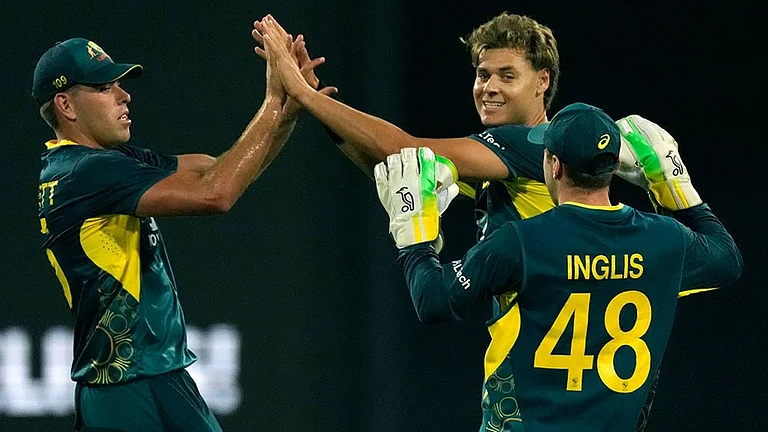The Supreme Court has quashed the rape charges levelled by a woman against a man, saying she had a consensual relationship with him that continued prior to her marriage with another man, during the subsistence of her marriage, and even after the divorce.
A bench of Justice DY Chnadrachud and AS Bopanna passed the verdict on the plea by the man who challenged the Allahabad High Court order refusing to quash the charges and the charge sheet filed against him.
The bench said taking the allegations in the complaint as they stand, it is impossible to find in the FIR or the charge sheet, the essential ingredients of an offence under Section 376 IPC (rape).
"We, accordingly, allow the appeal and set aside the impugned judgement and order of the High Court dated October 5, 2018, in an application under section 482 of CrPC…. The application under Section 482 of CrPC shall accordingly stand allowed", the bench said, while quashing the case lodged against the man and the order dated May 24, 2018, of the additional chief judicial magistrate taking cognisance of the charge sheet against him.
The bench said that in the present case, the issue which had to be addressed by the High Court was whether, assuming all the allegations in the charge sheet are correct as they stand, an offence punishable under Section 376 IPC was made out.
"Admittedly, the appellant and the second respondent were in a consensual relationship from 2013 until December 2017. They are both educated adults. The second respondent, during the course of this period, got married on June 12, 2014, to someone else. The marriage ended in a decree of divorce by mutual consent on September 17, 2017. The allegations of the second respondent indicate that her relationship with the appellant continued prior to her marriage, during the subsistence of the marriage, and after the grant of divorce by mutual consent", it said.
Justice Chandrachud, who penned down the verdict, said that the crucial issue which was to be considered is whether the allegations indicate that the appellant (man against whom rape charges were levelled) had given a promise to the woman to marry, which at the inception was false and based on which the second respondent (woman) was induced into a sexual relationship.
"Taking the allegations in the FIR and the charge sheet as they stand, the crucial ingredients of the offence under Section 375 IPC are absent. The relationship between the parties was purely of a consensual nature. The relationship, as noted above, was in existence prior to the marriage of the second respondent and continued to subsist during the term of the marriage and after the second respondent was granted a divorce by mutual consent", the bench said.
It said that the High Court, in the course of its judgement, has merely observed that the dispute raises a question of fact that cannot be considered in an application under Section 482 of CrPC.
"As demonstrated in the above analysis, the facts as they stand, which are not in dispute, would indicate that the ingredients of the offence under Section 376 IPC were not established. The High Court has, therefore, proceeded to dismiss the application under Section 482 of CrPC on a completely misconceived basis", it said.
The High Court had on October 5, 2018, dismissed an application of the man accused of rape, seeking to quash the rape case against him and the order taking cognizance of the charge sheet.
The bench noted that the woman in her statement recorded before the magistrate had accepted that both had known each other since 2013 and subsequently got into a relationship.
The bench said she had admitted that "On June 12, 2014, the marriage of the second respondent was solemnized with someone else in spite of which the relationship with the appellant continued. The second respondent stated that the appellant had compelled her to break away from the marriage and her matrimonial relationship had come to an end in March 2015, barely three months after she stayed in the matrimonial home".
The bench noted that the woman has stated that she thereafter returned to the parental home and then started living with the appellant.
"After the completion of her training in 2016, the second respondent continued to live with the appellant until December 2017. The grievance of the second respondent was that the appellant got engaged to someone else on December 10, 2017. Though the appellant is alleged to have agreed to break off his engagement, he failed to abide by his assurance", the top court noted.
The bench said that the parameters governing the exercise of the jurisdiction of Section 482 of CrPC (for quashing of the charges) are well-settled and have been reiterated in a consistent line of decisions of this Court.
-With PTI Input


























